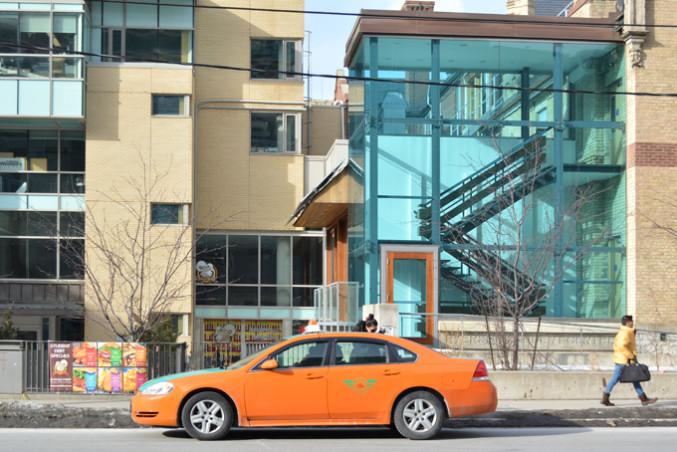By Kayla Goodfield and Behdad Mahichi
Intoxicated students flail their arms late at night over the weekend, as the roads fill up with cabs throughout the entertainment district. But before even entering a cab, you can now be denied the ride.
Ryerson University students, along with all Torontonians, will be facing new regulations on the streets and in the taxis of downtown Toronto.
Taxi drivers in the city will soon be allowed to request a $25 “vomit fee” before passengers enter the vehicles.
Refusing to pay the fee could result in being barred from a taxi.
After a three-year review of Toronto’s taxi industry, city council made the decision on Feb. 19 to keep fares the same, but to add new regulations.
“That doesn’t make sense that you would have to give the money upfront,” said first-year photography student Jesse Sarkis. “It should be that the cab driver can charge up to $25 dollars if, and only if, you puke in the cab.” The “vomit fee” law will be implemented on July 1.
If requested, the payment must be made up-front in cash or using a debit or credit card before entering the vehicle. Then, if there is no issue, the fee will be refunded to the passenger at the end of the ride.
“We are not trying to take money from students, but it’s not fair to us for them to not pay,” said Ashra Bhuiy, 54, a driver for Crown Taxi.
[youtube]http://www.youtube.com/watch?v=3yPRvE356gc[/youtube]
Targeted towards intoxicated passengers who vomit in taxis, this payment will assist in cleanup fees.
However, some taxi drivers still claim it won’t cover all their losses.
“[The fee] is too low. I think, actually, it [should be] around $50,” said Hassan, a driver for Diamond Taxicab. “After that, we have to clean it up and it takes 40-50 minutes to clean.” The reforms aim to create greater stability and trust between the driver and the passenger.
There are reported instances where taxis have refused service for short-distance fares, which according to the city bylaw, is illegal.
According to CTV News, in 2008, a group of undercover female police officers disguised as clubgoers ran an investigation on this claims. They ended up being refused a ride home because their destination was too close to the Entertainment District.
“We, as police, enforce whatever the law has been and we will abide by laws,” said Victor Kwong, Toronto Police media relations officer
“But laws still have exemptions and these exemptions are that if the cab driver has fear for safety and not being paid, then they don’t have to pick the customer up. However, it is against the law for a cabbie to turn down a fare that is too short.”
“This law is put in place to help give people a safe ride home.” The reforms passed at city hall shed light on an industry that has gone untouched for years.
“If I felt like I was going to puke, then I would agree to this payment,” said Davida Houston, a third-year radio and television arts student. “Otherwise it’s just awkward to get the money back from the cab driver, so I would wait for the next cab instead.”










Leave a Reply